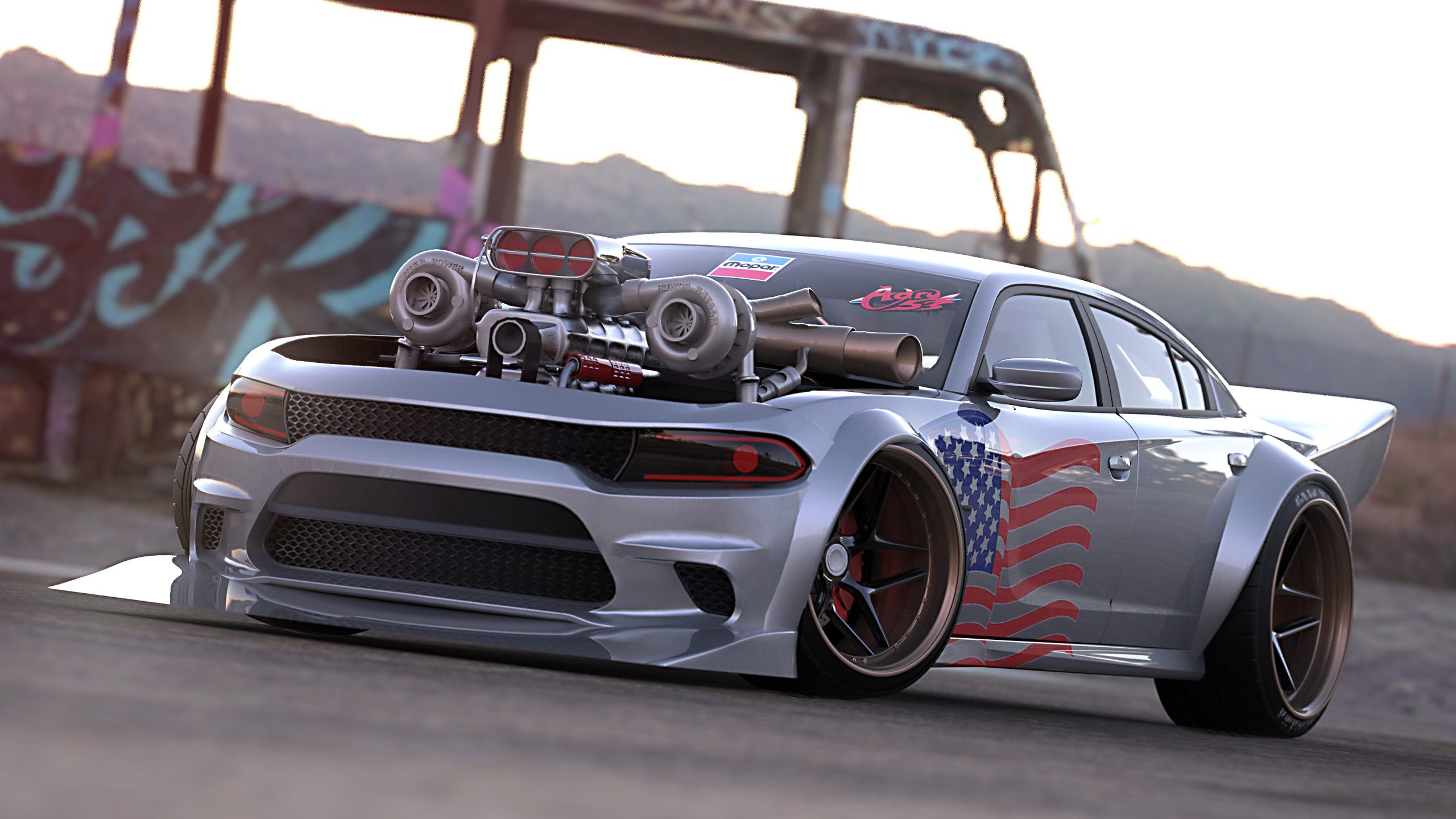Car enthusiasts often love to personalise their vehicles, enhancing performance, appearance, or both. However, it’s essential to be aware of the legal restrictions on car modifications in the United Kingdom to ensure that your customised ride remains compliant with the law. This article will guide you through which car modifications are legal in the UK.
Safety First
In the UK, road safety is a top priority. Any car modification that compromises safety is generally illegal. This includes modifications that affect the car’s braking system, lights, tires, and steering. Safety-related modifications must meet the standards set out by the Vehicle and Operator Services Agency (VOSA) and the Driver and Vehicle Standards Agency (DVSA). Any deviation from these standards may result in fines, penalties, or even your car being deemed unfit for the road.
Exhaust Systems
Many car enthusiasts love to upgrade their exhaust systems to improve the sound or performance of their vehicles. In the UK, it’s legal to modify your exhaust system as long as it doesn’t produce excessive noise. The law defines this as a noise level exceeding 74 decibels when measured from a meter away from the exhaust outlet while the engine is running. If your modified exhaust exceeds this limit, it can result in a fine and an order to revert to a compliant system.
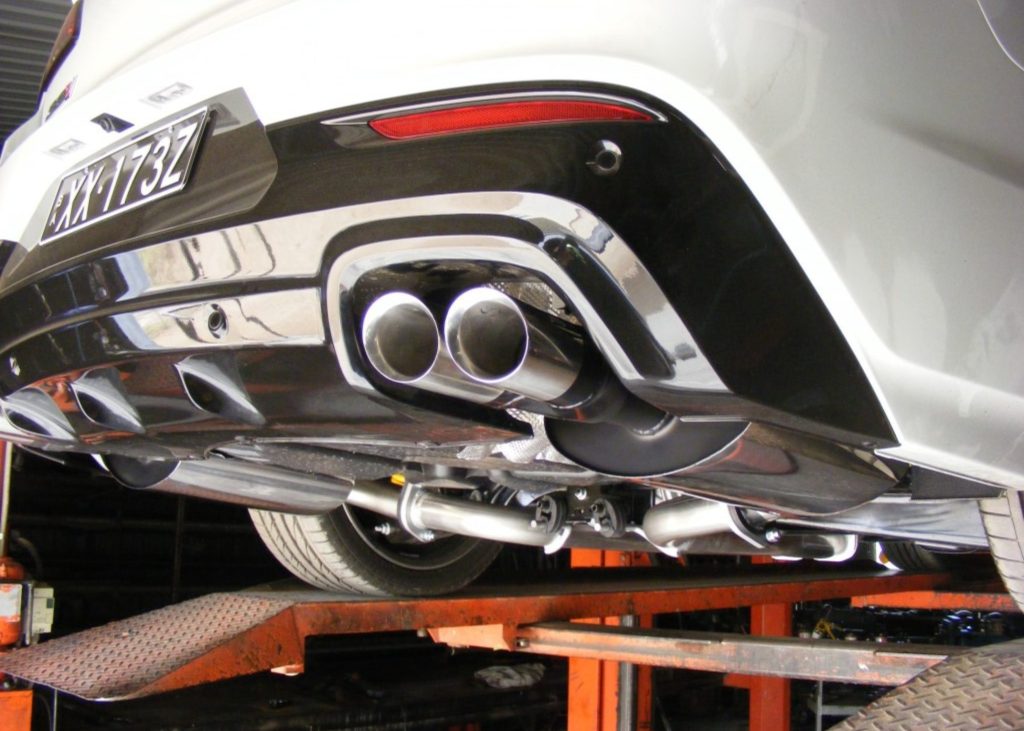
Window Tinting
Window tinting can add style and privacy to your car, but it’s subject to regulations. In the UK, front windows must allow at least 70% of light to pass through, while rear windows must allow at least 30% of light to pass through. Going beyond these limits is illegal, as it can hinder visibility and pose safety risks, especially at night.
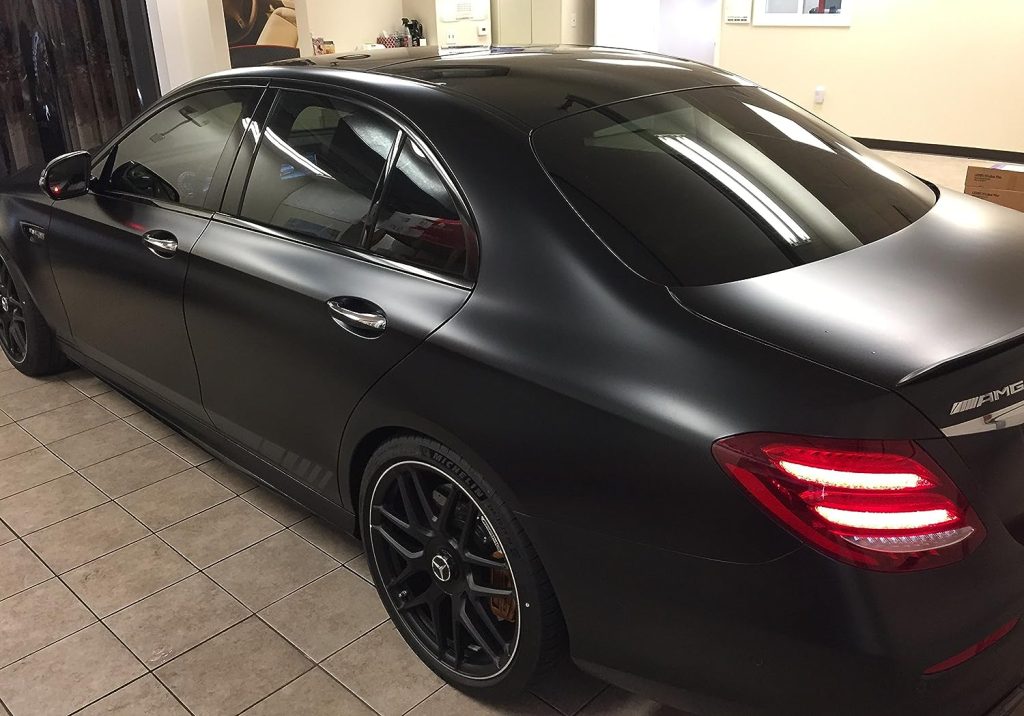
Suspension Modifications
Lowering or raising your car’s suspension can improve its handling and aesthetics. However, any suspension modifications must meet certain criteria. The vehicle’s ride height, alignment, and suspension components must not compromise safety or roadworthiness. Additionally, altering the suspension system to the extent that it negatively impacts the vehicle’s handling, stability, or safety can result in legal consequences.
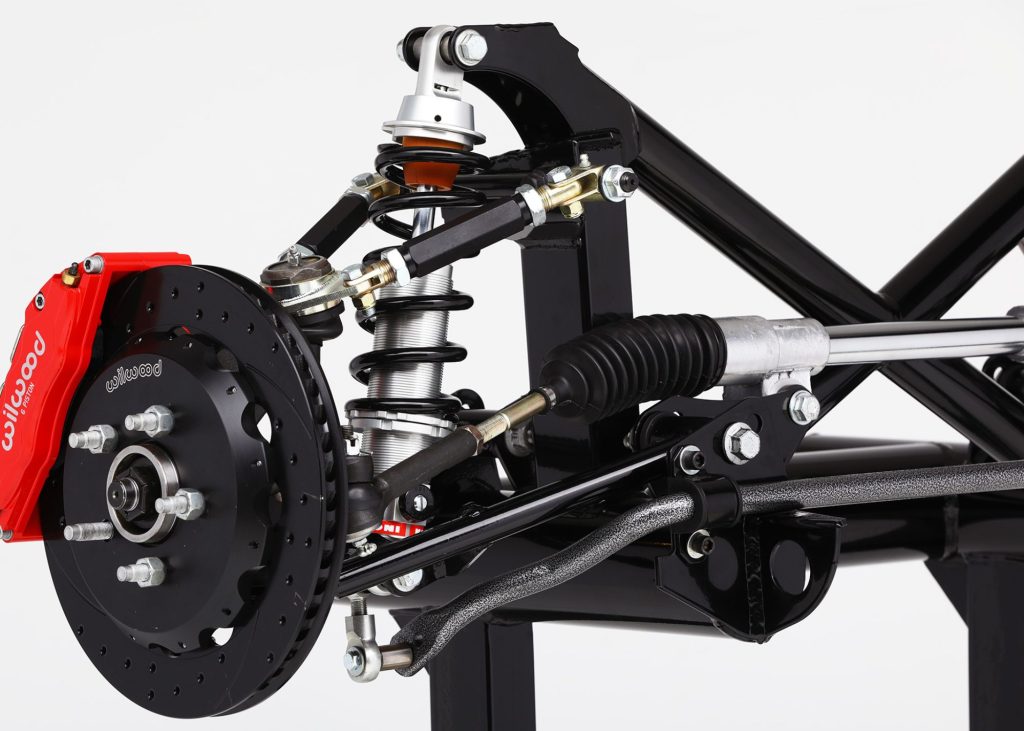
Body Kits and Styling
Customising your car with body kits, spoilers, and other styling modifications is generally legal, as long as they don’t obstruct your lights, indicators, or license plates. However, some extreme modifications that substantially change the vehicle’s dimensions may require re-certification to ensure they comply with safety regulations.
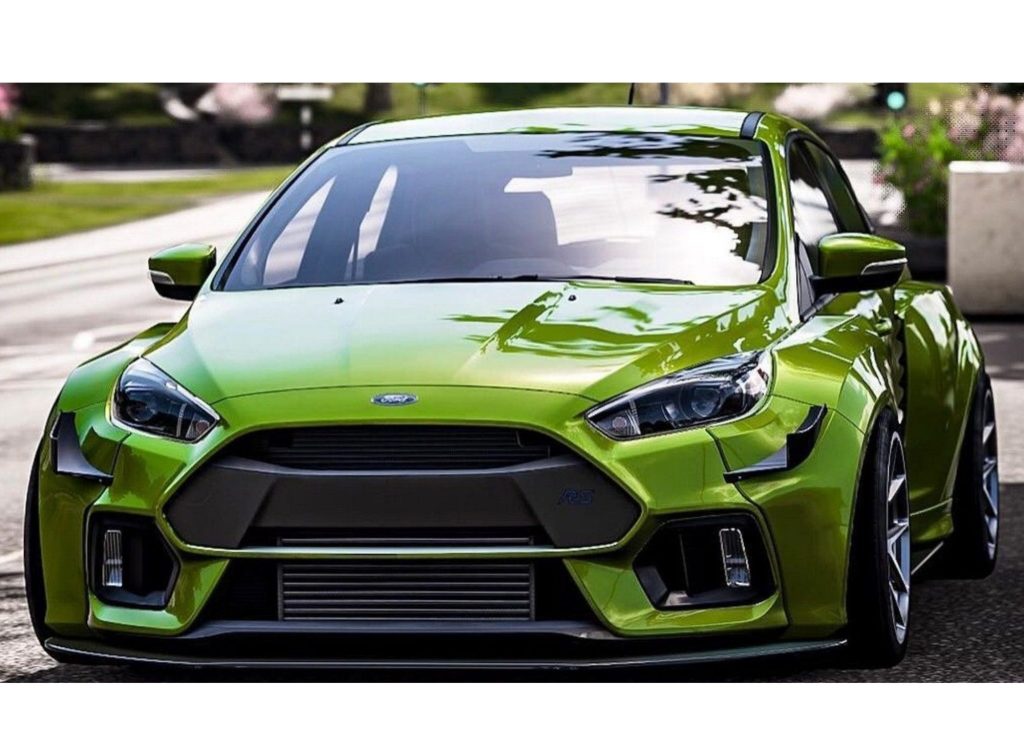
Engine Modifications
Performance modifications such as engine tuning, turbocharging, or supercharging are legal as long as they don’t lead to excessive noise or emissions. It’s crucial to ensure that your modified engine meets the UK’s emissions standards. Running a car with illegal emissions levels can result in fines and penalties.
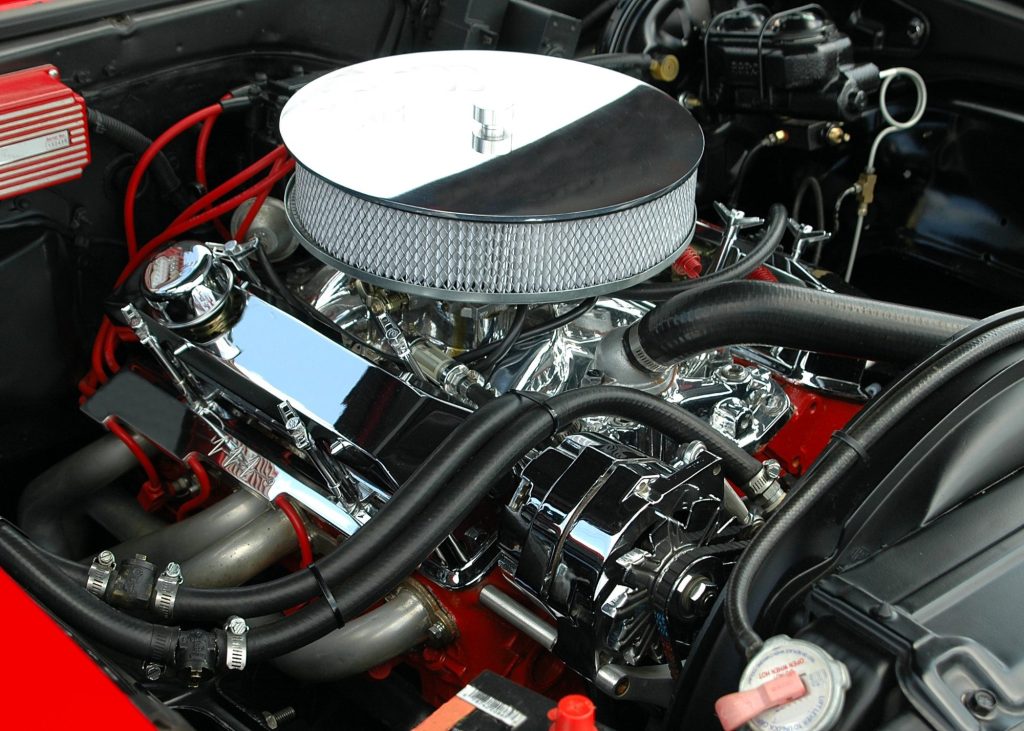
Wheel and Tire Modifications
Upgrading your wheels and tires can enhance both the appearance and performance of your car. However, it’s essential to stay within the legal limits regarding tire tread depth and width. Using tires that are too wide or not having adequate tread depth can be hazardous and result in fines.
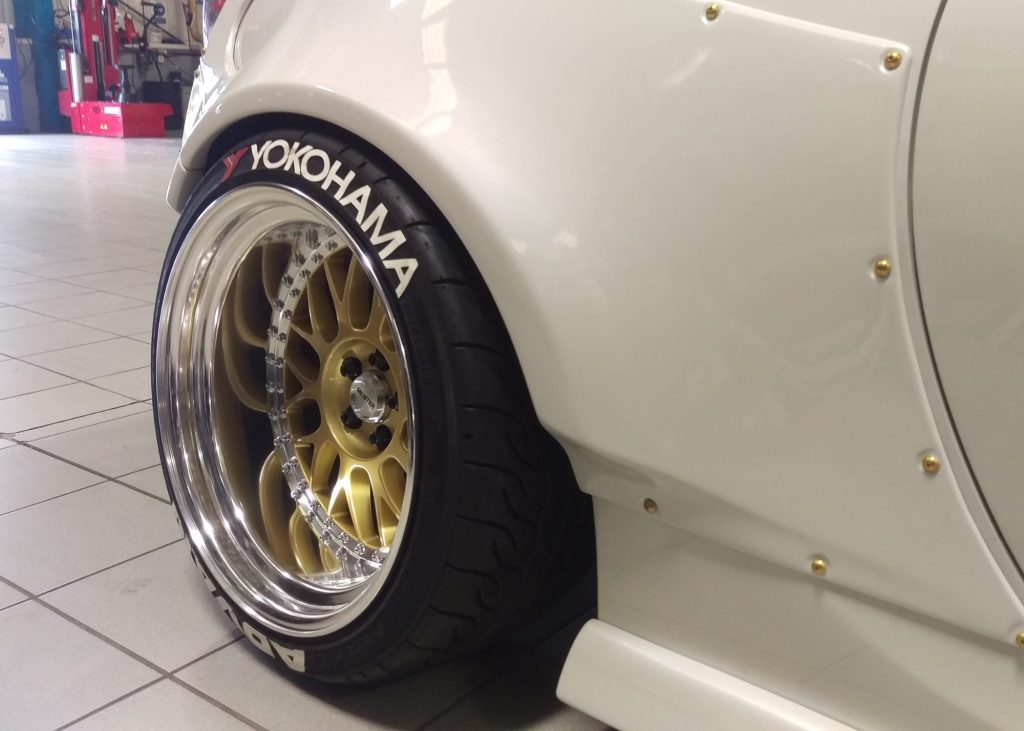
Conclusion
In the United Kingdom, car modifications are allowed as long as they adhere to safety and environmental regulations. Prioritise safety, ensure modifications don’t compromise your car’s roadworthiness, and be mindful of noise and emissions levels. Always consult with a knowledgeable professional or check with government agencies like the DVSA to ensure your car modifications are legal and compliant with UK law. By doing so, you can enjoy your customised ride while staying on the right side of the law.
Car Modification Legality FAQ’S
Are aftermarket exhaust systems legal?
Aftermarket exhaust systems are generally legal as long as they meet certain noise and emissions standards. The exhaust system should not produce excessive noise or exceed prescribed emission levels.
Can I legally lower or raise my car’s suspension?
You can legally modify your car’s suspension, but it must be done within specific limits. Extreme modifications that compromise safety or result in an unsafe ride height are likely to be illegal.
Is it legal to tint my car windows?
Tinted windows are allowed, but they must adhere to specific regulations regarding the level of visible light transmission (VLT). Front windows typically need to allow at least 70% VLT, while rear windows can often be darker.
Are LED or HID headlights legal?
LED and HID headlights are generally legal as long as they comply with regulations regarding brightness, beam pattern, and proper alignment.
Can I install a body kit or modify my car’s appearance?
You can modify your car’s appearance with body kits and other accessories, as long as they don’t obstruct visibility, lights, or license plates.
Is it legal to install a turbocharger or supercharger?
Installing a turbocharger or supercharger is generally legal, but it may require notifying your insurance company and updating your vehicle’s documentation.
Are engine swaps legal?
Engine swaps are legal, but they must meet emissions and safety standards. You should also inform the Driver and Vehicle Licensing Agency (DVLA) and update your vehicle’s documentation.
Can I modify my car’s emissions equipment?
Modifying emissions equipment is typically illegal, as it can lead to increased pollution. Emissions control systems should remain intact.
Is it legal to install underglow or neon lights?
It is generally legal to install underglow or neon lights, but they should not emit excessive brightness or distract other drivers.
Can I change the size or type of my car’s tires and wheels?
You can change the size or type of your car’s tires and wheels as long as they fit within the vehicle’s wheel arches and do not compromise safety.
Are aftermarket brake systems or brake upgrades legal?
Upgrading your car’s brakes with aftermarket systems is generally legal and can improve safety, as long as the components meet safety standards.
Is it legal to install a roll cage or racing harnesses?
Installing a roll cage or racing harnesses is typically legal for track use but may not be street-legal. Always check local regulations.
Can I remove my car’s catalytic converter?
Removing the catalytic converter is illegal in the UK, as it affects emissions and air quality standards.
Are engine modifications like tuning or chip tuning legal?
Engine tuning is generally legal, but it should not result in excessive emissions or noise.
Is it legal to remove or modify my car’s airbags?
Modifying or removing airbags is generally not legal, as they are crucial for occupant safety.
Can I install a custom or loud horn?
Installing a custom horn may be legal, but it should not be excessively loud or sound like an emergency vehicle horn.
Are modifications to the exhaust sound (muffler deletes) legal?
Modifying exhaust sound by removing mufflers or making other changes may lead to excessive noise and could be illegal. It’s important to stay within noise regulations.
Is it legal to alter or replace my car’s seats?
Modifying or replacing seats is generally legal, but they should be secure and meet safety standards.
Can I add a spoiler or wing to my car?
Adding a spoiler or wing is legal as long as it doesn’t obstruct visibility or violate other safety regulations.
Are modifications to the steering wheel or pedals legal?
Modifying the steering wheel or pedals is usually legal as long as the changes do not compromise safety.
